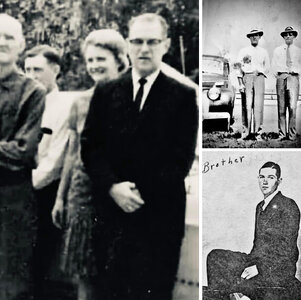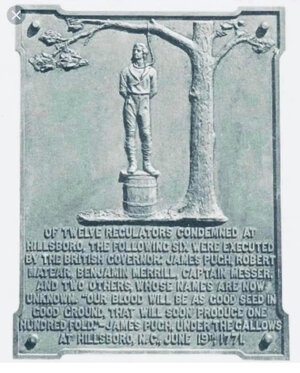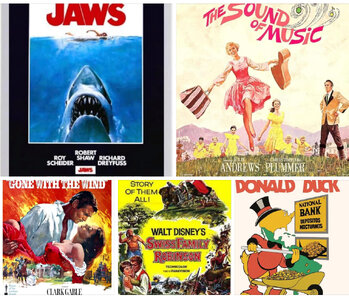donbosco
Inconceivable Member
- Messages
- 3,634
Missed this one by a day...
Follow along with the video below to see how to install our site as a web app on your home screen.
Note: This feature may not be available in some browsers.

Beautiful house and property. It might be a duplex or triplex and/or condo of sorts.
It was pretty rundown in the ‘70’s and some of the ‘80’s.

My Dad had very limited use of his right arm due to it gettting shot-up in WW2. Due to shrapnel (fragments from a Japanese mortar) in his brain he had to take Dilantin for the rest of his life. I remember one time when I was young and before I could drive, he was driving and had to pull over into a side area at a gas station. Once he stopped I asked if he needed anything from the gas station. He just waived his hand at me. So we sat there quietly for about 10 minutes. Finally he told he had just had a seizure. Explained that he was in no danger of an accident, he just didn't know where he was going, but knew enough to pull over and wait. I was a little freaked out, but as he was my father, I was young, and he did handle everything well, I decided that he knew what he was doing. Normally the Dilantin worked and these events seldom happened. In his mid-70's he voluntarily surrendered his licence.
This is kind of a strange connection but bear with me. My Deddy was missing all but his thumb on his left hand. He lost those fingers in a molasses mill when he was in his late teens. His first cousin Shelton was missing two fingers. I think his accident occurred in a sawmill. Great Uncle June Ivey was shy his entire left hand. There was, frankly, a pretty steady stream of men with missing digits and parts that passed through #BonleeHardware when I think back on it.
Chalk it up to close work with machines that cut, crush, and rip and a general lack of safety regulations. Combine that with a period (1940-50s) when the lumber business boomed and you get those waylaid fingers, toes, and hands. I only remember one missing leg but along with fingers were some absent arms too.
In the photo you can see how my Deddy would stand for photographs, his right hand covering the injury. The missing fingers never really seemed to bother him in doing most things. It did keep him from being a baseball player or ever playing catch with me. Otherwise at least by the time I came along he had figured out alternative ways of making do. To watch him tie his shoe was a wonder and he put a nail in between his thumb and nub of a hand, took good aim and drove it deep with a decisive first whack of his hammer. He even had a nimble way of buttoning his shirt that was downright graceful. Cufflinks were tough but they are for most everybody.
His disability made him big on thinking things through before tackling a task. Today you’d call that visualizing. I saw him move refrigerators and heavy objects many times by ‘walking’ it or even more cleverly by using a towel or piece of cardboard wedged beneath as a slide. He worked with gravity, and leverage was his pal. So many times I watched him pause rather than rush in on a task as he imagined the steps to come.
I’m not really sure exactly what this has to do with a 19th century prosthetic leg factory in the Raleigh except to suggest that North Carolinians have a long history of losing limbs and body parts and coming up with work-arounds. #OTD (June 18) in 1867 the state artificial limb factory closed, having provided prosthetics to 1500+ Confederate vets. North Carolina was the 1st of the defeated states to offer this service. The factory was in Raleigh. N.C.’s Limb Replacement Program
In the photograph below cropped from a larger family portrait note that Deddy, standing by Momma with his father Willis, Uncle Gene, and Aunt Ethel, has covered his fingerless hand with his hale and hearty one. He did that in every posed photo I have ever seen. In another photo he stands with Uncle Cecil, both be-hatted and by a late ‘30s sedan, and has placed his left hand behind him. The image of him, youngish, slim and suited, was taken before his accident and thus show his fingers. I so clearly remember standing by my Momma as we looked down at Deddy in his casket, his right hand covering the left, hiding one last time the fundamental challenge, always overcome, of his long (93 years) and exceptional life.

"The people of Texas are informed that, in accordance with a proclamation from the Executive of the United States, all slaves are free."
Interesting that this was the event picked. I do think the end of slavery should be celebrated with its own day and the day it was enforced in the last Confederate State seems like a reasonable choice but there were other options. Does anyone know why this was chosen versus say the day the emancipation proclamation was issued (Jan 1) or the day the 13th amendment was ratified (Dec 6)?Quickly and to sum up...
- On this date, Union General Gordon Granger arrived in Galveston, Texas, and issued General Order No. 3, announcing:
- Texas had been relatively untouched by fighting, so many enslaved people there hadn’t yet heard of their freedom — more than two years after the Emancipation Proclamation.
Juneteenth marks the day the Emancipation Proclamation was finally enforced in the last Confederate state with substantial slavery.
Interesting that this was the event picked. I do think the end of slavery should be celebrated with its own day and the day it was enforced in the last Confederate State seems like a reasonable choice but there were other options. Does anyone know why this was chosen versus say the day the emancipation proclamation was issued (Jan 1) or the day the 13th amendment was ratified (Dec 6)?
I guess it makes sense that you wouldn't want to share the celebration with New Years day. I wonder if Juneteenth was a summer holiday versus December 6th which is kind of crowded on the holiday calendar?
Yeah. I think you're right. I looked it up and it looks like it grew organically from a celebration of freed slaves in Galveston, Texas pretty close to the end of the civil war and spread throughout the country over the next 150 years. It became an official federal holiday in 2021.One factor I believe is that African Americans in Texas were already celebrating the date and it spread to other states from there.

You read “Jaws” at age 16.
#OnThisDay (June20) in 1975 not-yet-17 year old me drove all the way over to the Yorktown Theater in Raleigh from Deep Chatham #Bonlee to wait in line for the debut of a must-see film titled ‘Jaws.’ I had read the book the summer before. It was a pretty big trip at 16 and kind of a glimpse into a wider world of entertainment, the likes of which was just beginning to open up for me. I didn’t grow up going to movies or live music events regularly other than church or school. It just wasn’t something my parents did.
The first movie I ever saw in a theater was “The Sound of Music.” It was 1965 and I was 7. That required a special trip to Greensboro with cousins. My aunts Burdine, Leisel, and Lila took us. The music captured me but I was most taken by the courageous outwitting of the Nazis that capped off the story of The Singing Von Trapps. The evil of fascism was already well-established for me early in life…as it remains.
In an ironic contrast, the second film I saw in a theater was a re-release of “Gone With The Wind” at ‘The Curtis’ in Liberty. My parents took me to that and it remains the only occasion of which I am aware of them going to a movie in my lifetime. It was 1967. I suspect that they had seen the four-hour-long, with intermission, blockbuster at its original showing in 1939 - they would have been in their early 20s. They were married in 1940. I can imagine that it was a big date in those times. That film’s glorification of a mythical South did plenty of damage and promoted “The Lost Cause” to several generations. Therein lies the irony mentioned - while “The Sound of Music” solidified my distaste for Rightist wrongdoing so too did “Gone With The Wind” come along working to counter those sentiments.
The next, and final film that I saw as a child was the innocuous Disney flick “The Swiss Family Robinson.” Maybe I should rewatch that one to see what messages were embedded there? In those days old Walt still lived and we now recognize his own penchant for insidious messaging (Just give ‘How To Read Donald Duck’ a look see some time).
#OTD 1975 ‘Jaws’ opened in theaters across the USA. The film’s message wasn’t subtle and millions never looked at the ocean the same way again. Afterward, and into the following year, summer vacation tourism in the mountains of Western North Carolina rose precipitously.
You read “Jaws” at age 16.
Peter Benchley’s novel was pretty racy for a teenager from Deep Chatham.
The young woman having sex on the beach and then skinny dipping in the opening chapter……..
Matt Hooper (the Richard Dreyfus character) and Ellen Brody (Chief Brody’s wife, played by Lorraine Gary)…….their sex scene was kinda explicit for that era.
